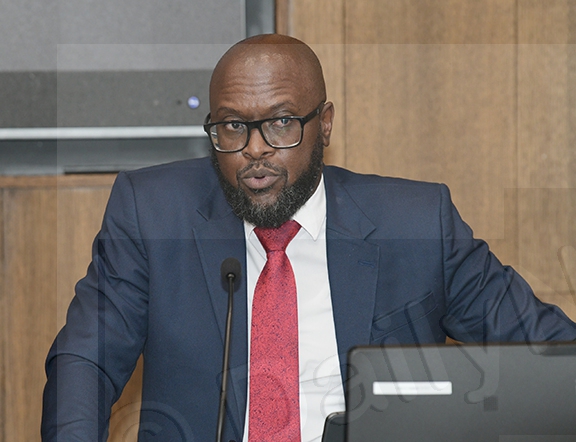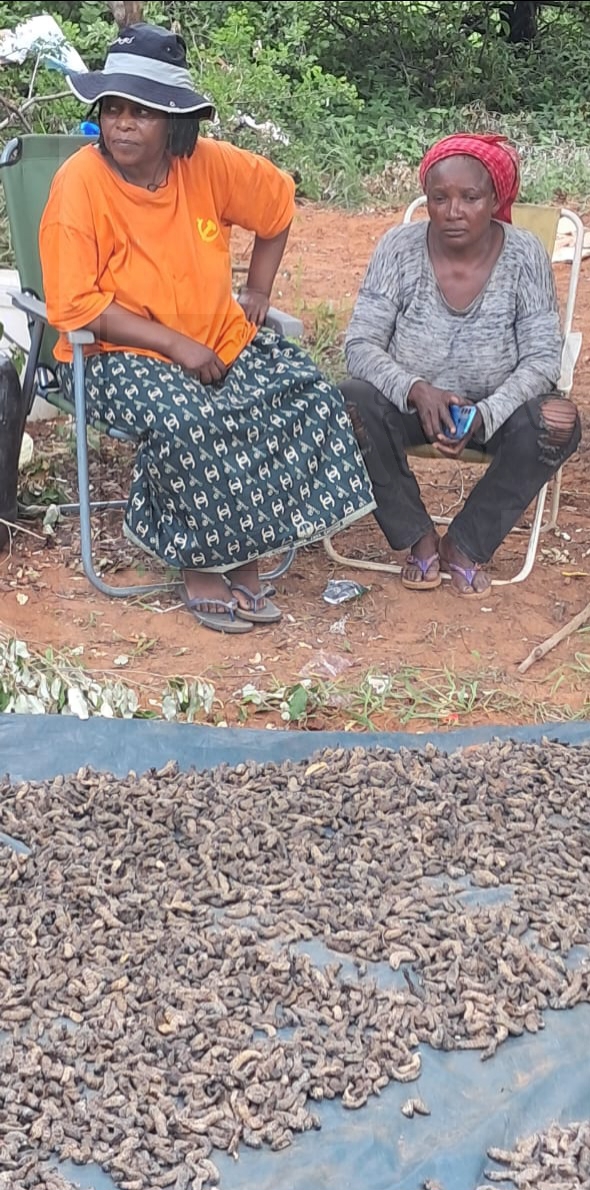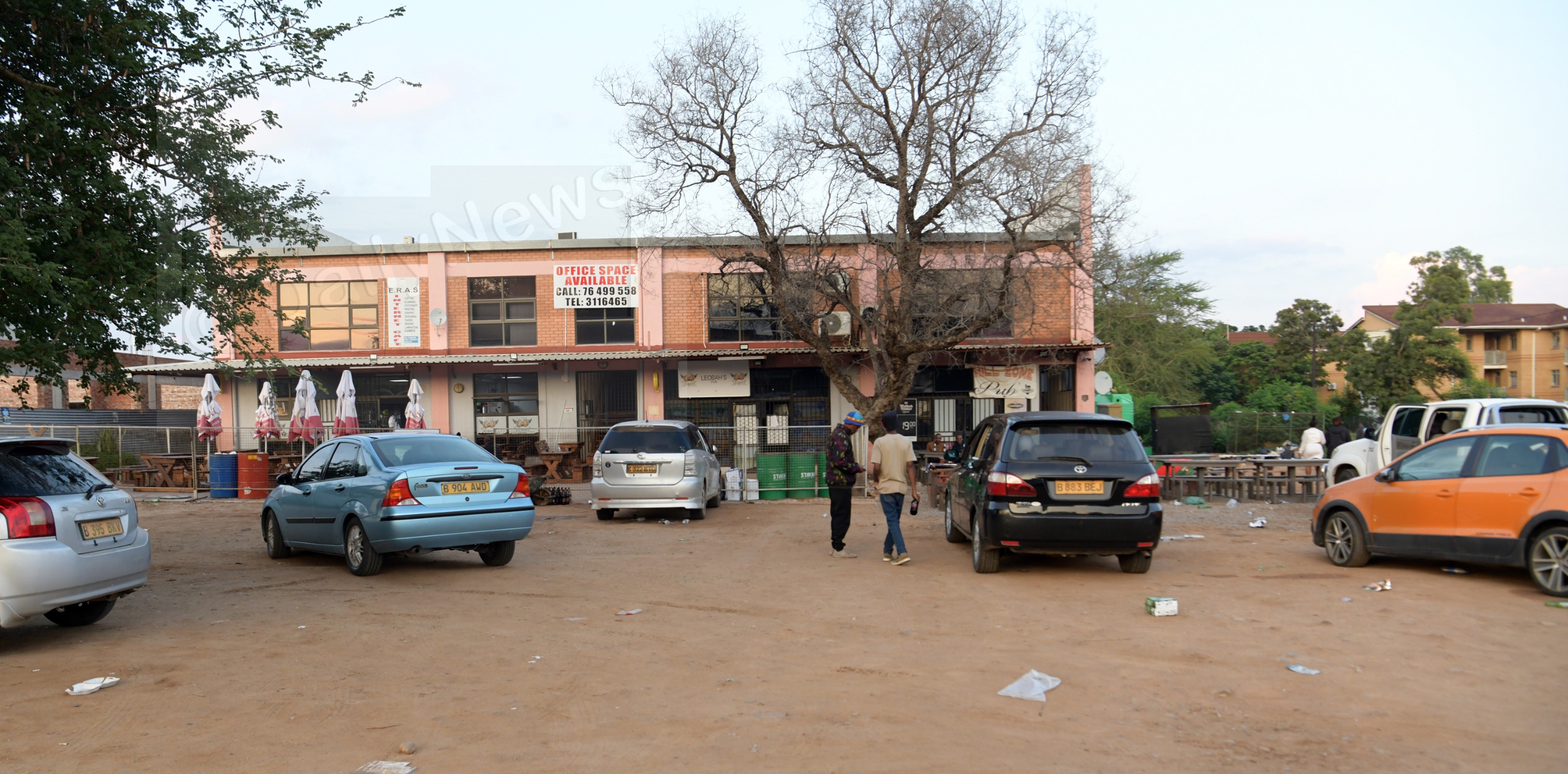Salvinia weed under control in the delta
27 Mar 2024
Salvinia molesta weed that has been giving the North West District sleepless nights is reported to be under control following a monitoring of the weed done in some sites in the Okavango Delta.
The weed commonly known as ‘Motjimbamo’ was common in the delta, Moremi Game Reserve, Linyanti and Chobe areas. Its negative impacts includes blocking streams and channels, choking of back water bodies affecting navigation and recreational activities such as fishing and tourism, and elimination of indigenous vegetation.
“We are about to conquer the problematic weed as monitoring that was done at 44 out of 56 sites and infestations in the lower Okavango Delta was found to have reduced significantly, especially along the Abaqao/Maunachira, Khwai and Boro River systems,” said the North West District Council Chairman, Mr Itumeleng Kelebetseng, when apprising councillors on the status of the salvinia weed in the district during the ongoing full council meeting.
He said the Department of Water and Sanitation managed to control the weed due to the weevils’ availability in the hot spot areas and low flows with limited distribution of the weed to other areas.
He explained that most of the sites in Moremi Game Reserve were under control with no salvinia and where present, the weed was isolated in a few patches and appreciated that the department continued to engage with safari camps to assist in the control of the weed in the delta.
Councillors were also informed that there has been a problem of river blockages by aquatic vegetation in the delta which had been a concern for a long time among the local communities and the tourism sector.
Mr Kelebetseng highlighted that the blockages mainly consisted of papyrus (koma) and vossia grass (mojakubu) which tend to impact on the natural flows by causing flow diversions.
In an attempt to attend to the situation, he said, the department deployed a dedicated team to conduct an assessment of the blockages along the Jao/Boro, Mborogha/Santantadibe/Gomoti and Moanachira/Khwai river systems last month.
The department is currently studying the findings and recommendations of the assessment report which would enable it to come up with possible intervention measures.
With regard to groundwater level monitoring, he said the district was experiencing a continuous decline of the groundwater levels in general mainly attributed to pumping for village water supply by the Water Utilities Corporation (WUC) and by individuals as well as natural depletion.
He also briefed the council on the status of Thamalakane River saying it was not satisfactory as the water flows and levels of lower Okavango Delta, especially along the Xudum, Boro, Santantadibe, Gomoti, and Thamalakane river systems had ceased to flow and completely dried up since November 2023.
He said the 2023/24 hydrological year’s annual inflows of the Okavango River at Mohembo were slightly higher than those of the preceding year.
During the past hydrological year 2022/23, flows reached the Thamalakane River in July but by beginning of October, the river’s water flow was disconnected while the lower Boro had dried up.
Mr Kelebetseng said that was mainly due to evaporation resulting from high temperatures experienced and abstractions.
“Generally, the flow trends of our river systems have shown a continuous decline in recent years as a result of a series of years of below-normal rainfall patterns upstream (Angola and Namibia) and this has a bearing on the current status of the entire delta.
We still remain hopeful that life will return to our river even though the Department of Meteorological Services forecasted that the bulk of the country is expected to receive below normal rainfall,” he said.
Despite the challenges that threaten the life of the river, he said, it was disheartening that the district continues to experience destruction of river systems and the environment at large owing to illegal mining of earth material particularly river sand.
He stated that the destruction was seen mostly around dried Shashe and Boronyane rivers noting that perpetrators were members of the community.
Mr Kelebetseng appealed to the community to join forces with law enforcement agencies to stop the practice saying the wetland they have was directly the source of livelihoods for all, hence its degradation could be detrimental not only economically but also socially and from an international relations perspective. ENDs
Source : BOPA
Author : Esther Mmolai
Location : MAUN
Event : full council meeting
Date : 27 Mar 2024





